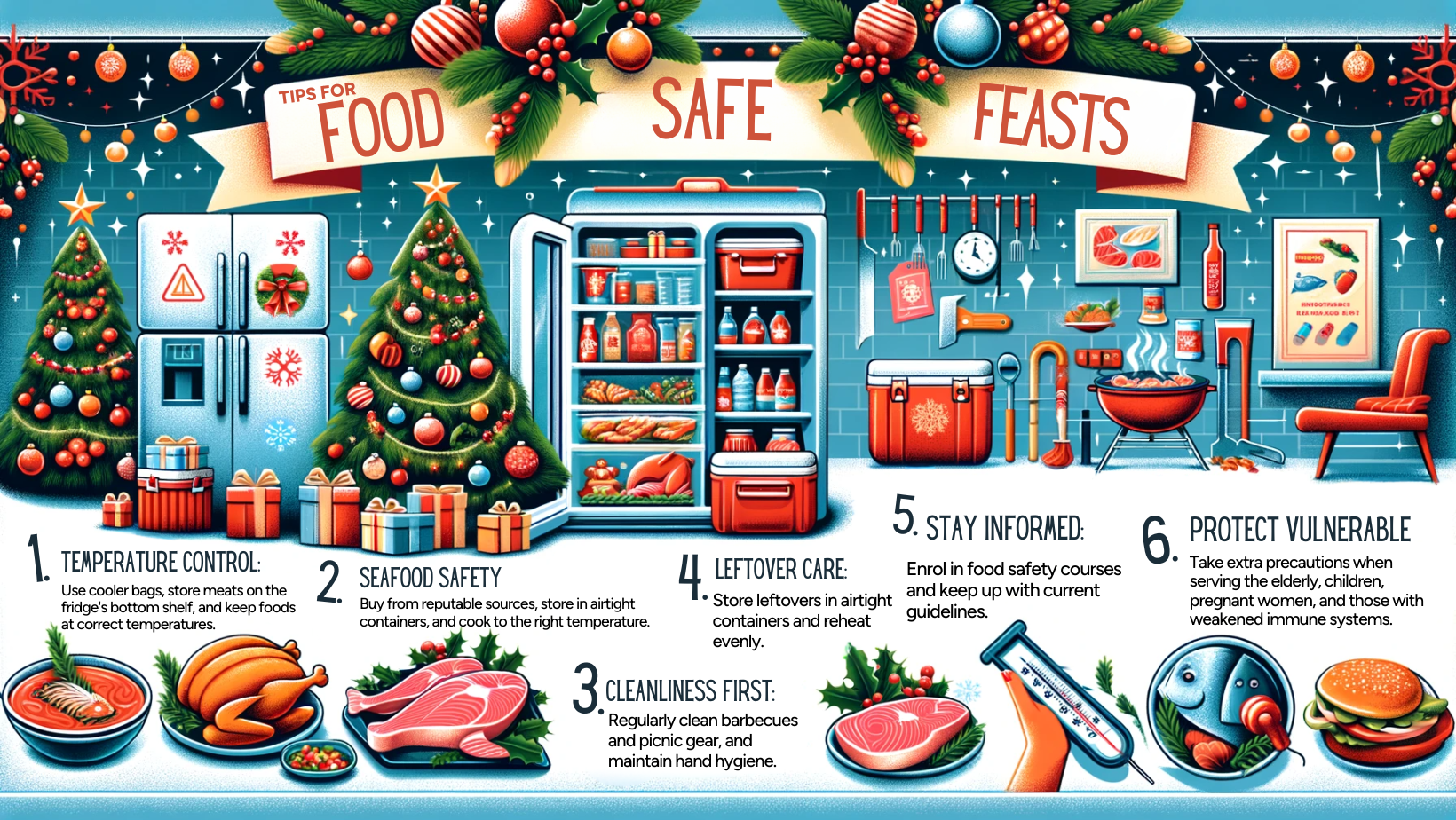Your Guide to Christmas Food Safety
As the festive season in Australia approaches, it's time to think about not only the celebrations but also the safety measures we need to take, especially when it comes to food. CFT International offers crucial advice on Christmas food safety to make your holidays both enjoyable and safe.
Understanding the Risks
The holiday season is synonymous with food, but it also brings a higher risk of food poisoning. The warm weather can cause bacteria in foods to multiply to dangerous levels. Large amounts of food preparation and storage, along with outdoor cooking and eating, pose unique challenges.
Key to Safety: Good Temperature Control
Proper refrigeration is crucial. Remember to:
Use cooler bags when shopping to transport perishables safely.
Store raw meats on the bottom shelf of the fridge to prevent juices from contaminating other foods.
Thoroughly thaw frozen food before cooking.
Keep hot foods hot and cold foods chilled.
Do not leave food out for more than two hours. In hot outdoor temperatures, reduce this to one hour.
Discard food left out for over four hours to avoid risks.
Seafood: A Holiday Delight but Handle with Care
Seafood is popular during the Australian Christmas, but it must be handled correctly.
Only buy from reputable suppliers.
Store seafood in airtight containers, except for live lobsters which need ventilated containers.
Cook seafood to an internal temperature of 63° C.
Use sushi-grade fish for dishes involving raw fish, as it meets strict freezing standards for safety.
Cleanliness is Next to Godliness
Whether indoors or outdoors, cleanliness is key.
Before the holiday season, clean your barbecue and picnic gear.
Regularly wash hands to avoid cross-contamination.
Clean and disinfect surfaces where food will be prepared.
Handling Leftovers
Leftovers are an integral part of the holiday feasting, but they need to be handled safely.
Store leftovers in clean, airtight containers.
When reheating, cover and stir food in the microwave to ensure even heating.
If you're feeling unwell, avoid handling food altogether.
Being Prepared and Informed
Education and preparation are your best defenses against foodborne illnesses.
Enroll in food safety courses offered by CFT International to better understand and implement safety measures.
Stay updated with the latest guidelines and recommendations.
Keeping Vulnerable Groups Safe
Remember that the elderly, young children, pregnant women, and those with compromised immune systems are more vulnerable to foodborne illnesses. Extra care should be taken when preparing and serving food to these groups.
Festive Food Safety Tips
A few more tips to ensure a safe and enjoyable holiday season:
Avoid cross-contamination by using separate cutting boards for raw and cooked foods.
Regularly check the temperature of your refrigerator to ensure it's functioning correctly.
Be mindful of expiration dates and storage instructions on food packaging.
Keep pets away from food preparation and serving areas.
CFT International: Here to Help
For more information or to join their food safety courses, reach out to CFT International:
By Phone: 1300 665 633 (Available Monday to Friday during working hours)
By Email: support@cft.edu.au (Available 7 days a week, 7 am-10 pm)
By Chat on their Website: cft.edu.au (Available Monday to Friday during working hours)
Conclusion
The holiday season is a time for joy and togetherness. By following these food safety tips from CFT International, you can ensure that your celebrations are not only festive but also safe and healthy. Remember, when it comes to food safety, it's always better to be cautious. Happy holidays, and stay safe!
This blog post is brought to you by CFT International. For comprehensive information on food safety, consult your local government agency or Food Standards Australia New Zealand.
Share this story

Chat to one of our trainers
Our team are here to help with your questions












